What Is the Origin of the Word Volcano
In my liberal-arts-undergraduate life, I ended up taking a few linguistics classes to fulfill the requirements for my anthropology minor. I actually had a lot of fun, especially when we started talking about the etymology of words in modern English (otherwise known as, 'stolen from everyone else'). Working out the component parts of a word is one of my favorite tricks for learning new vocab (I also play this game when I'm trying to deal with other languages, especially ones with a Latin base. It really works!)
So this weekend I started thinking about the specialized vocabulary that geologists use. Geology is fairly new as a science, and we've essentially cobbled together our own language to describe a lot of the things we study. But where do those words come from? Enter the Oxford English Dictionary, which is a fascinating place to spend a few free hours (or more). Not only will it define a word for you, it will give you a really thorough etymology of where that word came from, who used it, and when. So, courtesy of of the OED, here's a tour through the origins of the volcanology vocabulary that I use all the time. The obvious place to start is, of course,
Volcano. This was predictable to anyone who knows their Roman mythology: Vulcan was the Roman god of fire and the forge (stolen from the Greek Hephaestus, who would have made a much worse name for a volcano. Can you imagine shouting "Look out! The Hephaestus is about to erupt"? Nope, neither can I. We'll go with the Latin on this one.) There was also some suggestion that the Island of Vulcano (below) is where most other European languages picked up the term, although the earliest reference (Samuel Purchas' Pilgrimage of 1613) seems to be to Hekla in Iceland.
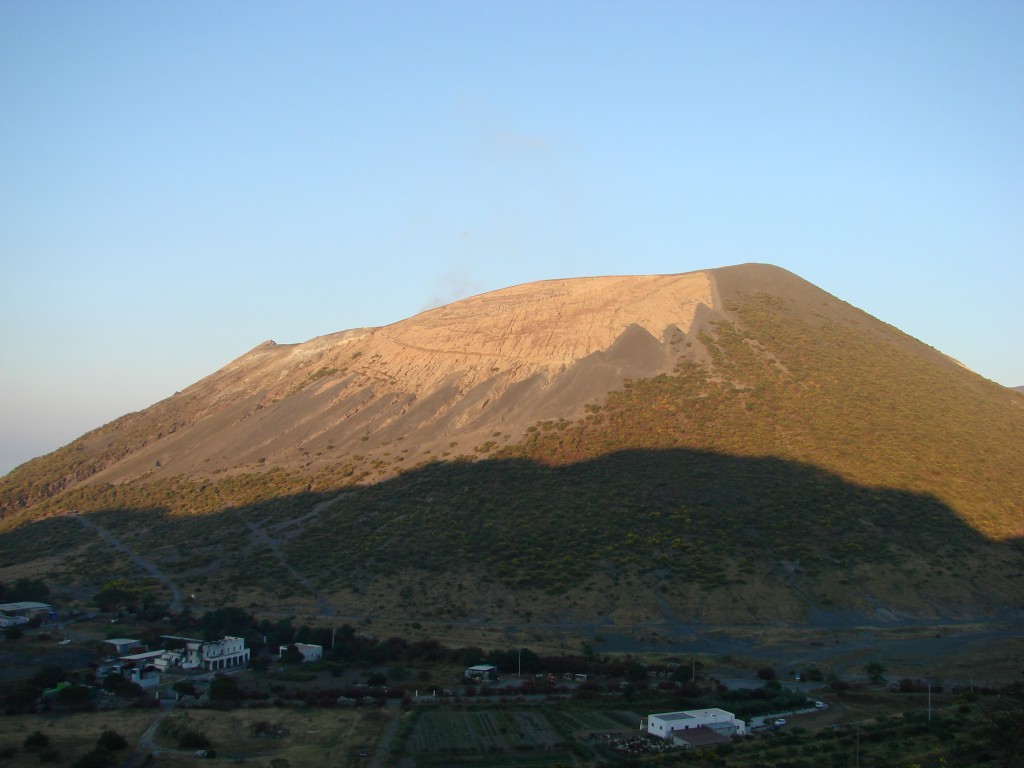
The Gran Cratare on Vulcano, Aeolian Islands
Lava. Another Latin/Italian contribution. Lavare means to wash; lava was said to refer to 'a streame or gutter suddainly caused by raine' and applied in the Neapolitan dialect to an eruption of Vesuvius sometime in the 17th century. We can probably assume that someone saw a lava flow sweeping down the slopes of Vesuvius and 'washing' away everything in its path, and drew the connection.
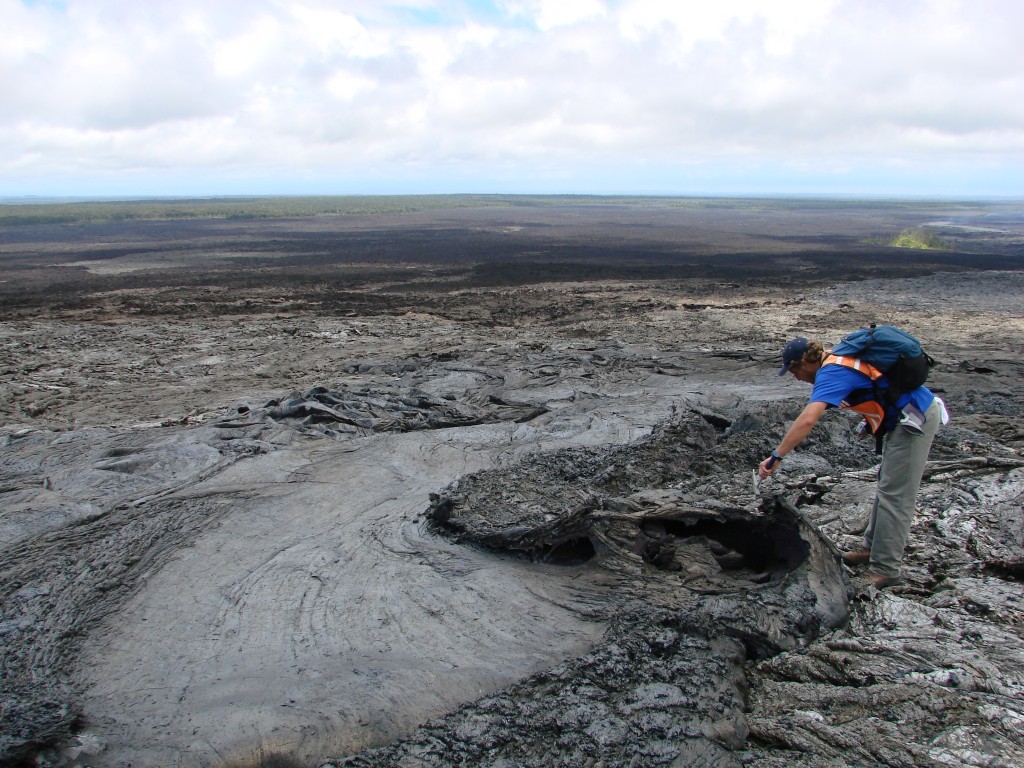
Lava flows on Pu'u O'o, Hawaii, 2007
Tephra. Pretty simple; tephra (τέϕρα) is Greek for ash or ashes (although I think it originally referred to ashes from a funeral pyre). Volcanologists have expanded it to include all of the air-transported particles that come out of a volcanic eruption.
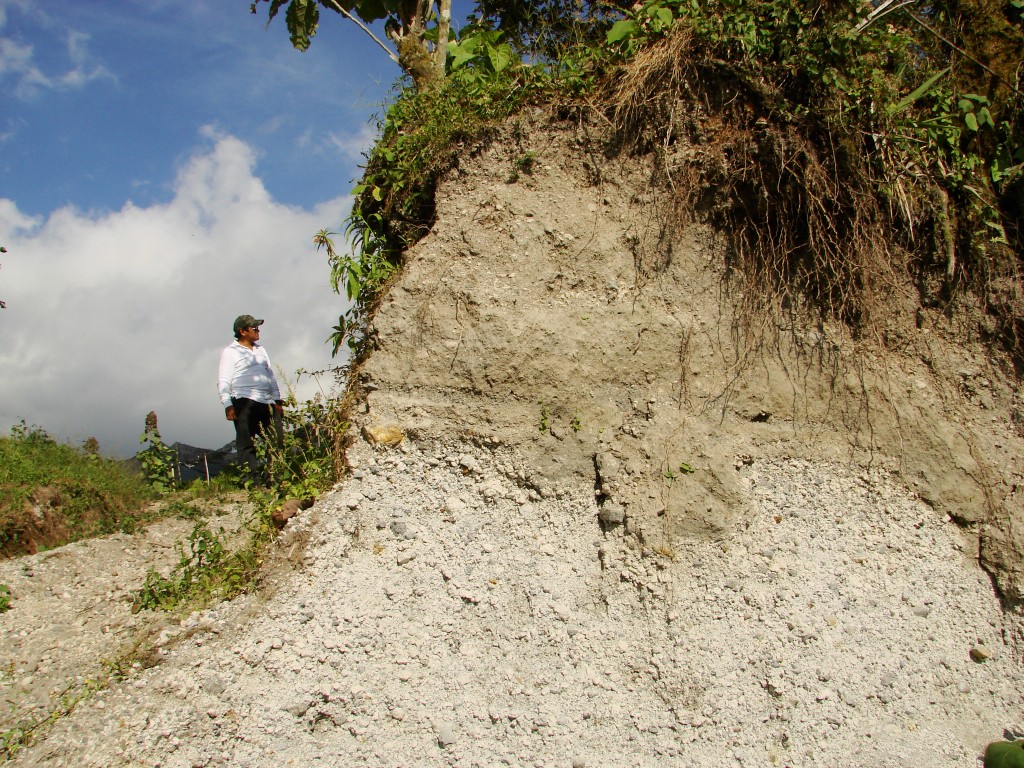
Tephra (ash, pumice, and lithics) deposited during the 1902 eruption of Santa Maria, Guatemala (the scale is a bit off here, but the outcrop is a couple of meters high)
Scoria. Latin for dross, but also Greek for dung. Dross makes more sense to me, since volcanic scoria does tend to resemble the slag that you get from refining ores (and the dross is what you have left behind after you've gotten all the good stuff out).
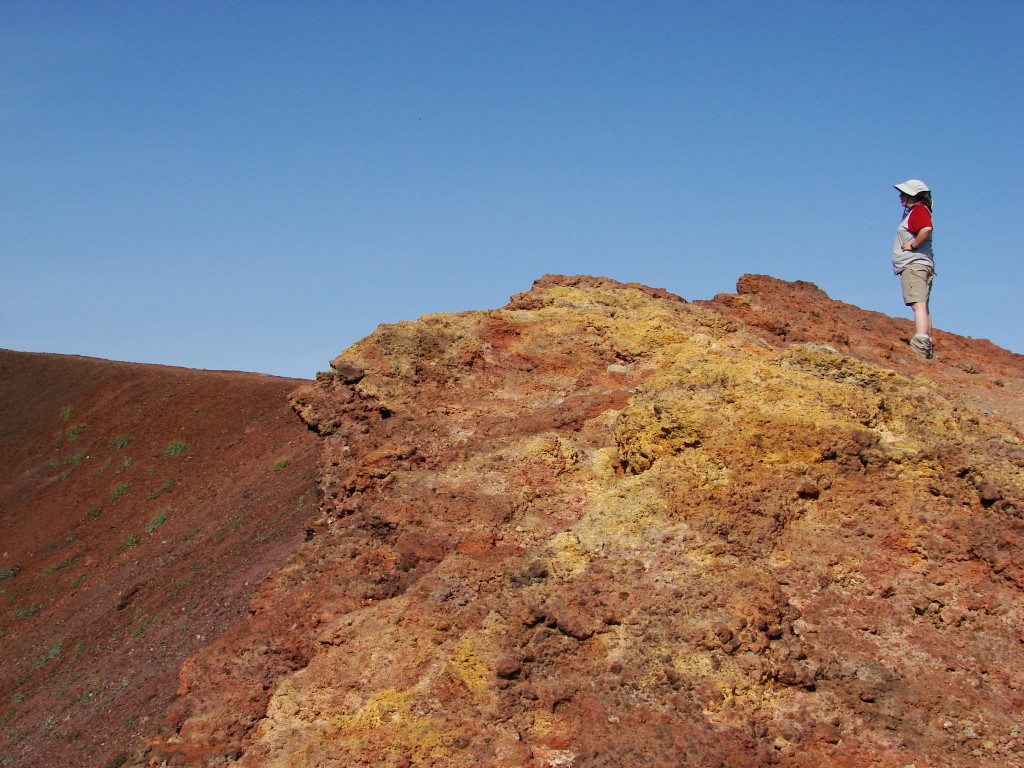
The edge of a scoria cone (with welded and oxidized scoria) on Mount Etna, 2009
Caldera. There are a lot of languages with similar words (Spanish is caldera, Portuguese caldeira, and French ischaudière), but they all refer to a cauldron or kettle. Those languages, of course, stole it from the Latin caldaria (s. caldarium), which referred to a Roman hot bath or bathing room. Which makes sense overall; calderas can certainly be hot, steamy places, and the shape is similar to a large bowl or cauldron. A bit of the oldest and new origins, perhaps.
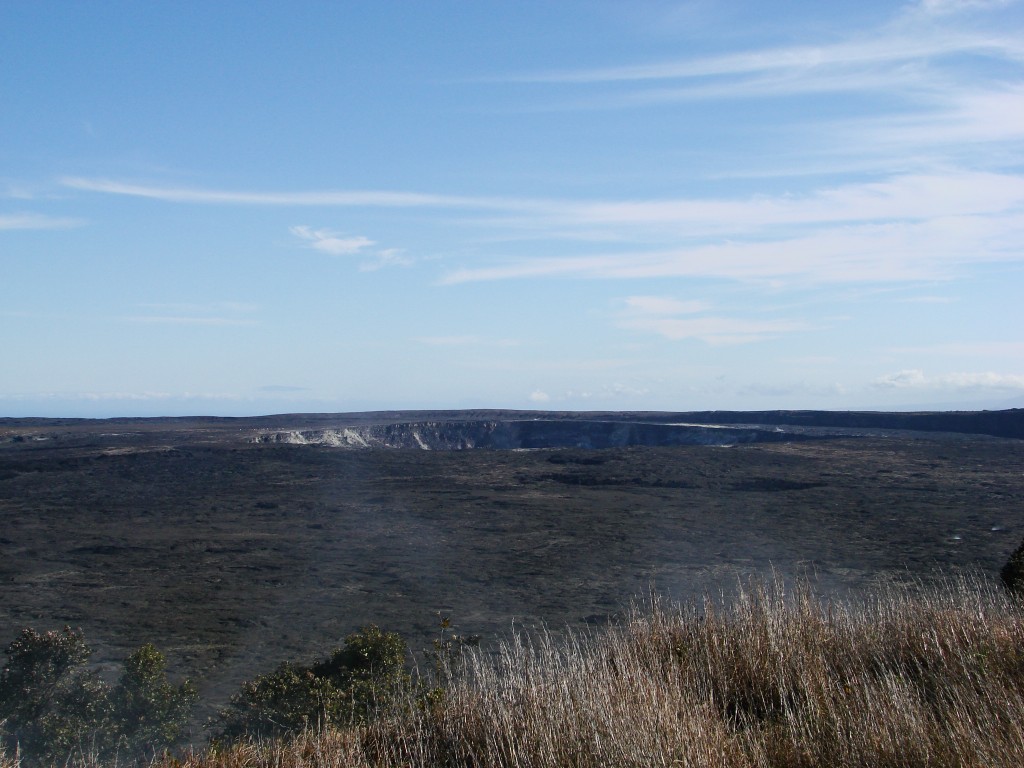
Looking out over the summit caldera of Kilauea, Hawaii, 2007
Ignimbrite. Ign- is a Latin prefix referring to fire, and imbr-is or imber is a shower of rain or a stormcloud. So the etymology implies a process: a rain of fire produced this rock. Bingo! Ignimbrites form during large explosive eruptions, generally from pyroclastic density currents (which are composed of very hot things), so this could definitely look like a rain of fire, at least at night.
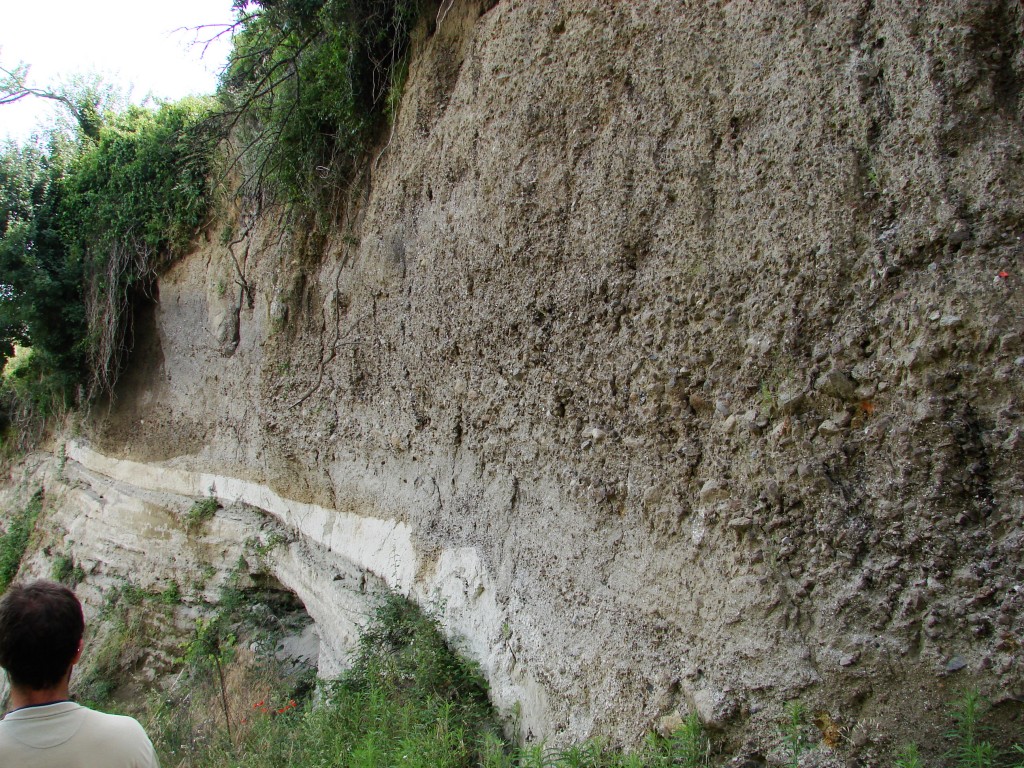
Outcrop of the Sovana ignimbrite, Vulsini, Italy, 2009
Tuff. This one is a bit tricky, because it's got Italian origins, but the Italians also used the word tufo (and the French tufa) to describe a soft or easily crumbling building stone. We now use tufa when referring to a carbonate rock and tuff when referring to a volcanic one, but they've apparently both got Italian (and hence Latin) roots. The Latin is tofus or tophus, a general name for loose porous stones of various kinds.
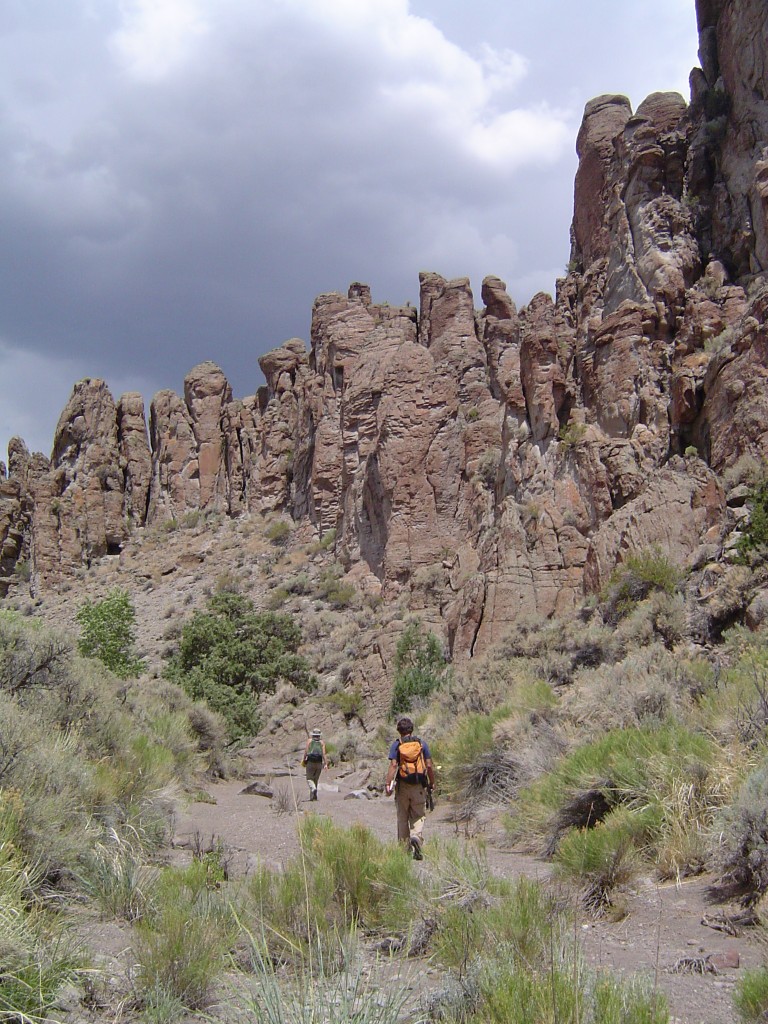
Hiking by outcrops of the Osiris trachyte, a welded ash-flow tuff on the Fish Lake Plateau, Utah, 2006
I'm thinking the next post will have to be on minerals, since I happened to look up plagioclase and sanidine and boy, do those names make more sense now! (That's another great thing about learning the etymology of a word – the really good compound words have meanings that usually describe something pretty distinctive about what they're naming. For me, this makes the word a lot easier to remember…and who couldn't use help memorizing mineral names once in a while?)
What Is the Origin of the Word Volcano
Source: https://blogs.agu.org/magmacumlaude/2012/04/10/volcanology-etymology/
0 Response to "What Is the Origin of the Word Volcano"
Post a Comment